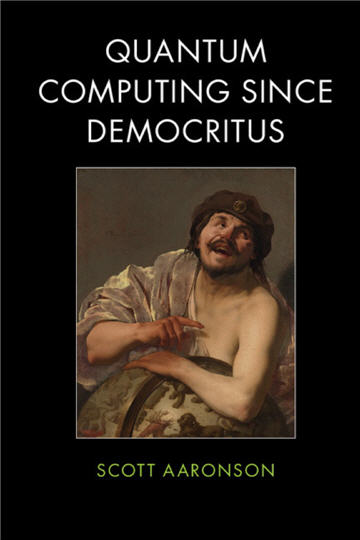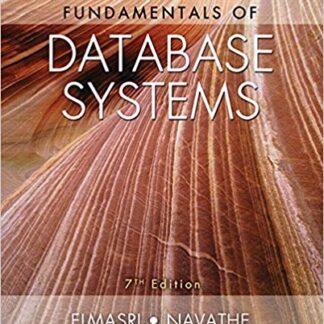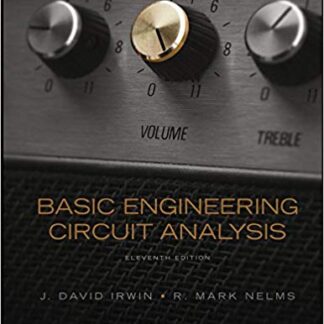Description
Quantum Computing Since Democritus 1st Edition by Scott Aaronson, ISBN-13: 978-0521199568
[PDF eBook eTextbook] – Available Instantly
376 pages
Publisher: Cambridge University Press; 1 edition (November 26, 2001)
Language: English
ISBN-10: 0521792851
ISBN-13: 978-0521792851
Takes students and researchers on a tour through some of the deepest ideas of maths, computer science and physics.
Written by noted quantum computing theorist Scott Aaronson, this book takes readers on a tour through some of the deepest ideas of maths, computer science and physics. Full of insights, arguments and philosophical perspectives, the book covers an amazing array of topics. Beginning in antiquity with Democritus, it progresses through logic and set theory, computability and complexity theory, quantum computing, cryptography, the information content of quantum states and the interpretation of quantum mechanics. There are also extended discussions about time travel, Newcomb’s Paradox, the anthropic principle and the views of Roger Penrose. Aaronson’s informal style makes this fascinating book accessible to readers with scientific backgrounds, as well as students and researchers working in physics, computer science, mathematics and philosophy.
Table of Contents:
Coverpage
Quantum Computing since Democritus
Title page
Copyright page
Dedication
Contents
Preface
Acknowledgments
1. Atoms and the void
2. Sets
3. Gödel, Turing, and friends
4. Minds and machines
5. Paleocomplexity
6. P, NP, and friends
7. Randomness
8. Crypto
9. Quantum
10. Quantum computing
11. Penrose
12. Decoherence and hidden variables
13. Proofs
14. How big are quantum states?
15. Skepticism of quantum computing
16. Learning
17. Interactive proofs, circuit lower bounds, and more
18. Fun with the Anthropic Principle
19. Free will
20. Time travel
21. Cosmology and complexity
22. Ask me anything
Index
Scott Aaronson is an Associate Professor of Electrical Engineering and Computer Science at the Massachusetts Institute of Technology. Considered one of the top quantum complexity theorists in the world, he is well known for both his research in quantum computing and computational complexity theory and for his widely read blog Shtetl-Optimized. Professor Aaronson also created Complexity Zoo, an online encyclopedia of computational complexity theory and has written popular articles for Scientific American and The New York Times. His research and popular writing have earned him numerous awards, including the United States Presidential Early Career Award for Scientists and Engineers and the Alan T. Waterman Award.
What makes us different?
• Instant Download
• Always Competitive Pricing
• 100% Privacy
• FREE Sample Available
• 24-7 LIVE Customer Support





